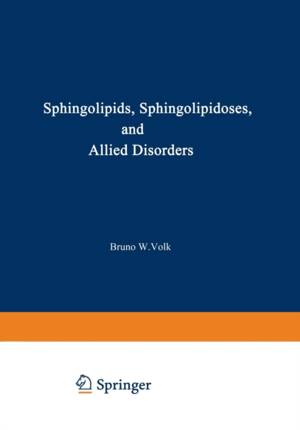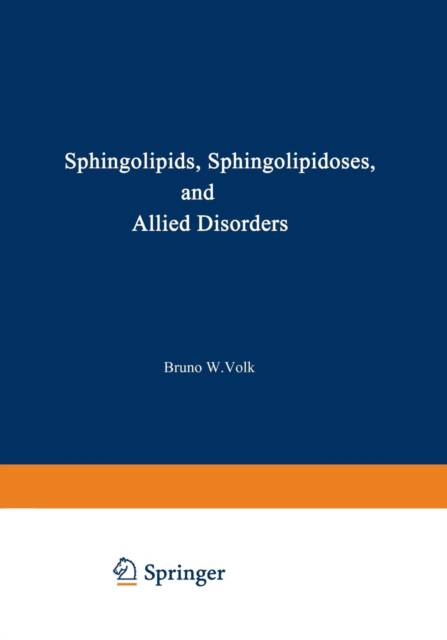
- Afhalen na 1 uur in een winkel met voorraad
- Gratis thuislevering in België vanaf € 30
- Ruim aanbod met 7 miljoen producten
- Afhalen na 1 uur in een winkel met voorraad
- Gratis thuislevering in België vanaf € 30
- Ruim aanbod met 7 miljoen producten
Zoeken
Sphingolipids, Sphingolipidoses and Allied Disorders
Proceedings of the Symposium on Sphingolipidoses and Allied Disorders Held in Brooklyn, New York, October 25-27, 1971
€ 106,95
+ 213 punten
Omschrijving
This text contains the scientific contributions to the Fourth International Symposium on Sphingolipids, Sphingo- lipidoses and Allied Disorders held at the Kingsbrook Jewish Medical Center on October 25-27, 1971. These meetings were conducted under the auspices of the Isaac Albert Research Institute of the Kingsbrook Jewish Medical Center and the National Tay-Sachs and Allied Diseases Association, Inc. Four symposia, held in 1958, 1961, 1965 and 1971 were designed to gather the most relevant and innovative of the laboratory and field studies concerned with these hereditary disorders. The texts generated by these periodic meetings have mirrored the increasing absorption of the scientific community in the problems of sphingolipid metabolism. The first meeting in 1958 consisted of but twelve pre- sentations, the majority emanating from local laboratories. The current sessions contain 48 scientific presentations by scientists from nine countries and demonstrate the increas- ingly diversified techniques and approaches employed in the study of these diseases. Many of the authors, in exploring data on the mucopolysaccharidoses and leucodystrophies, as well as the sphingolipidoses, have given recognition to those biochemical areas held in common by these otherwise diverse disease processes. The problems of prevention and therapy of these diseases have been considered by some of the contributors. Laboratory screening procedures designed to detect carriers of the va- rious lipidoses are now available and the experiences of some laboratories in this area are summarized within this volume. The prospective identification of heterozygotes may indeed become a powerful adjunct in genetic counseling.
Specificaties
Betrokkenen
- Uitgeverij:
Inhoud
- Aantal bladzijden:
- 691
- Taal:
- Engels
- Reeks:
- Reeksnummer:
- nr. 19
Eigenschappen
- Productcode (EAN):
- 9781475765724
- Verschijningsdatum:
- 3/03/2013
- Uitvoering:
- Paperback
- Formaat:
- Trade paperback (VS)
- Afmetingen:
- 178 mm x 254 mm
- Gewicht:
- 1224 g

Alleen bij Standaard Boekhandel
+ 213 punten op je klantenkaart van Standaard Boekhandel
Beoordelingen
We publiceren alleen reviews die voldoen aan de voorwaarden voor reviews. Bekijk onze voorwaarden voor reviews.







